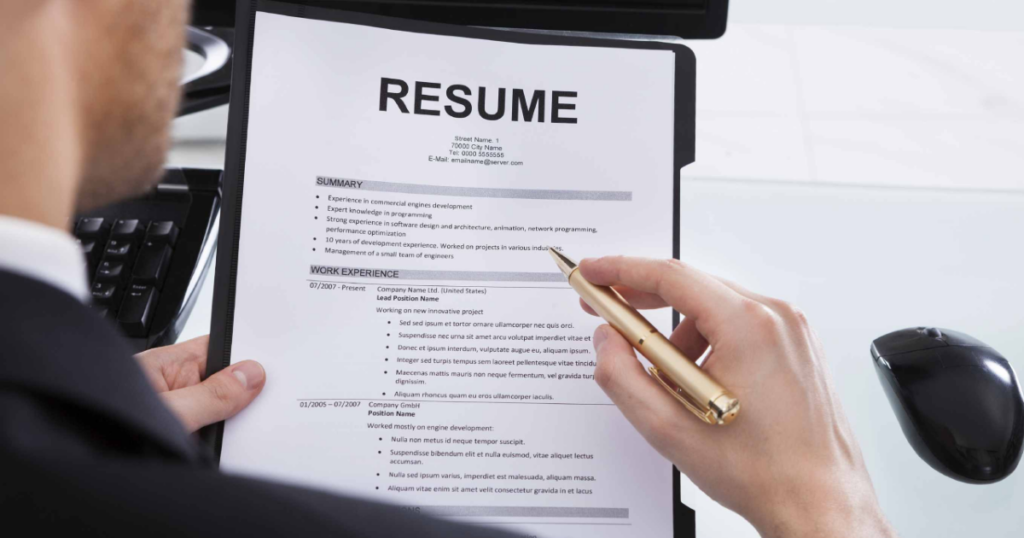
A resume is one of the most important pieces of paper you’ll ever write. It can be a determining factor in whether or not you get an interview, and it really needs to look good! In this article, we’ll provide tips on how to make your resume stand out from other applicants, and give examples of three common resume types: Traditional, chronological, and functional.
When deciding which resume format you should use, it’s important to consider what your most marketable skills are. Different resumes are better for different types of careers, so it’s best to choose the resume format that fits you, and aligns with the type of work you want to pursue.
When choosing a format, keep in mind which one will increase your chances at an interview. Since there isn’t really a wrong choice when picking between chronological, functional, or traditional formats, pick something that makes sense for your career trajectory.
For example: If you’ve worked at multiple jobs but still haven’t figured out exactly where you fit in the working world, then use a functional resume; if you feel like putting all those random experiences on paper together without bringing extra attention to specific employers, then use a chronological resume; and if you believe that your most marketable skills should be at the top of the page, then use a traditional resume.
The following tips should be taken into consideration when creating any type of resume:
When writing your resume, try using the following types of resumes depending on your work experience:
A functional resume is a type of resume that emphasises the applicant’s abilities and skills. It’s often used by people looking to make a career change, or those who have gaps in their employment. A recent graduate without extensive professional experience can also benefit from this type of resume. If you’ve gained important skills and experiences in areas other than professional employment, such as school or mentorship, you’ll also have an advantage with this format. By using this, employers can focus on a candidate’s skills, such as any technical or soft skills needed for the position.
A chronological resume is a format that prioritises relevant professional experience and achievements. If you have a lot of years of experience in one professional path and have worked for many businesses or clients in the same sector, a chronological resume is your best bet. It’s also critical that you have few or no gaps in your employment. This format is broken up into different sections. It shows what jobs you have before, and what you did when you were in them. It also tells how long you were on the job and what your responsibilities were. The chronological approach highlights key accomplishments throughout your career, making this sort of resume easy to follow, while also highlighting important abilities.
As the name suggests, it combines both chronological and functional resume types, allowing you to emphasise your skills and work experiences at one go. Due to the fact that more space could be used up with this type, you’ll need to eliminate or reduce other sections such as interests, summary, and objectives.
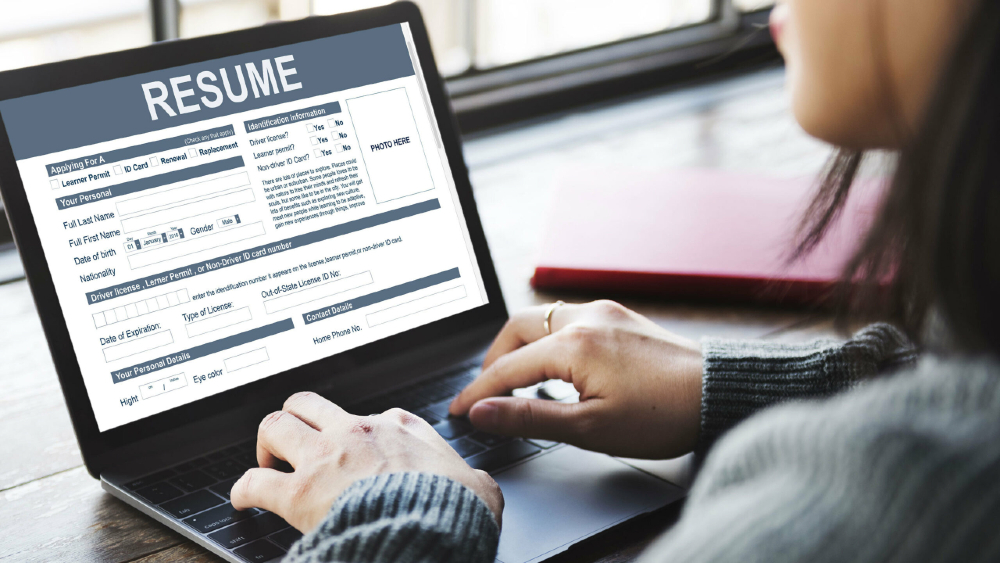
The goal of formatting your resume is to create a one-page document that can be quickly scanned, is easy to understand instantly at a glance, and highlights your most relevant information.
In addition to using the correct resume format (make sure to see which works best for you), there are many other formatting tips & tricks you should keep in mind:
Formatting mistakes, extreme tenses, long paragraphs, lack of bullet points or numbers – these are sure-fire ways to lose your reader’s interest fast, so make sure not to do them before sending it off.
Also, remember that every resume you send out is a reflection on yourself as a professional worker; take your time with this document because how it looks and reads is a big part of how your potential employer will perceive you.
This helps them see what skills and qualifications are most relevant to the position they’re hiring for – getting rid of any fluff or irrelevant information makes sure their time isn’t wasted.
If you’re looking to land a new job, it’s important that your resume reflects the type of work history an employer would want. For example, if you have had numerous short-term jobs in different fields but no long term employment, list one past experience first before listing each individual experience – this will allow employers to better see where these experiences fit into your career path from an outside perspective.
It’s also vital that formatting mistakes and other errors don’t go unnoticed by potential employers, as they can quickly lose interest in reading through resumes with typos or grammatical errors. If you’re unsure which format style is best for your background, take some time to consider what skills are most relevant to the position being offered at their company before deciding on how best to structure your resume.

Because leadership skills may have different meanings to various people, they are difficult to define. The skills that allow you to effectively talk with others and lead them toward a common objective are referred to as leadership. These skills constitute your personal brand of authority, such as charisma or confidence – characteristics that set you apart in any crowd. This article will explain what leadership skills are, how they can help you achieve your professional goals, and offer some advice on developing them.
Leadership skills are useful because they can help you achieve your career goals. Leadership is the ability to influence others and get them to work together towards a common goal. These leadership skills are important for any industry or job role, which is why it’s so critical that people take time out of their busy schedules to hone these very valuable skills.
While you’re in the early stages of your company, displaying leadership abilities can assist you in gaining clients, investors, and creditors. For example, when meeting clients for the first time, it’s your ability to lead and influence that will help you make a lasting impression on them. When you scale up your business, leadership abilities become even more important because they can be used to manage personnel. Whether you want to become the CEO of your company or manage a team of employees, leadership skills will come in handy in both scenarios.
Many company owners and managers seek leadership abilities in prospective employees. This is because good leaders possess the skills to get anything done, no matter what obstacles are in their way. Understanding the benefits of leadership skills can help you to become a better leader and successfully guide your subordinate towards success.
Leadership is a complex skill that incorporates many different talents. Some examples of skills that make a strong leader include:
A good leader knows that a project can’t be done overnight, and is able to patiently guide their employees through the process. To guide an employee through the project, good leaders must be able to understand that mistakes will happen along the way. They also need to know how to help that employee fix their mistake without it affecting the entire process. This isn’t an easy skill to learn; however, if you’re naturally patient and can put up with setbacks (and even acknowledge them), then you’re more likely to succeed and become a better leader.
No one wants to work for someone who constantly complains about everything or shows signs of negativity. A positive attitude helps you appear more approachable as well as contribute towards your team’s morale.
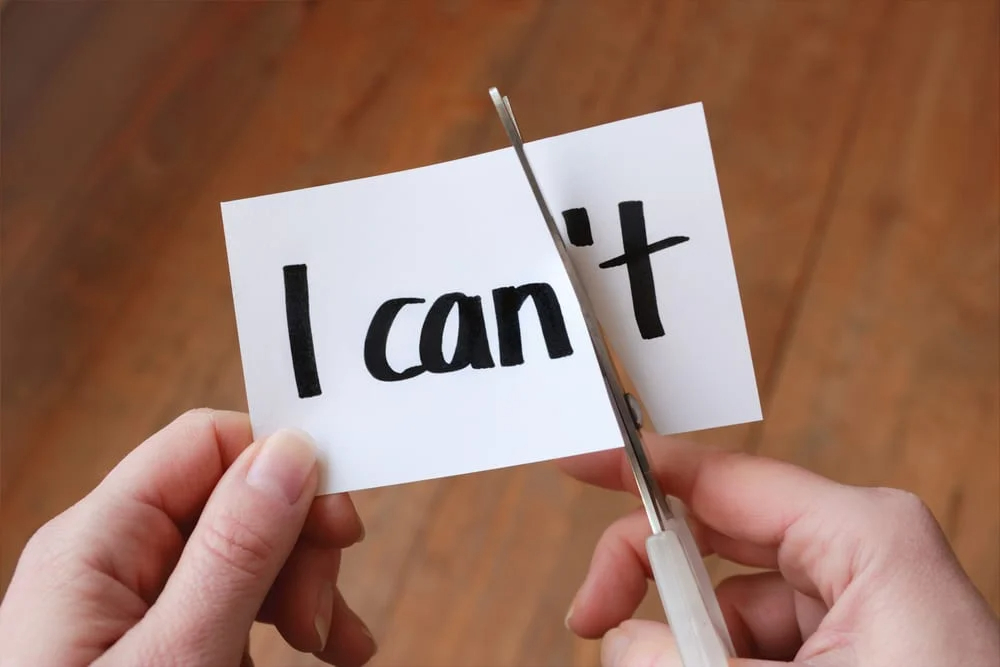
A good leader knows how to motivate their employees, which keeps them engaged and interested in the work they’re doing.
No one wants a company that’s stuck in the past; creativity is important for modernising your business or project.
As an employee or employer, you will be confronted with many conflicts. A good leader knows how to resolve these conflicts in a productive and timely manner.
A good leader knows how to empathise with their employees and understand the challenges they face.
A good leader is an active listener, which helps them better understand their employees and resolve issues efficiently.
A good leader is someone that employees can trust, and know that they’d be able to get the help and support of, in order to work correctly or succeed.
A good leader will do whatever it takes to see a project through from start to finish, which helps them gain the respect of their team members.
Making swift choices with authority.
A good leader knows how to persuade employees into following their vision and mission.
Attending to the needs of other individuals, like empathy for their feelings
Communicating well, either verbally or in writing. Being able to work well with others is an important leadership skill that can help you succeed in your career.
Having the ability to think creatively about businesses or projects will allow for innovative ideas .
Leaders should be able to prioritise their time, especially when it comes to communication.
A good leader knows how to teach and lead by example.
Being ready for unexpected projects or tasks that need to be done immediately .
Putting other people’s needs before your own, prioritising their ideas over yours.
Leaders should have a strong sense of achievement in order to feel successful.

By demonstrating leadership abilities in your company or career, you can pave the way to success. Leadership skills help you be a better leader and guide your employees towards accomplishing goals, which will help elevate your business. In any company, leadership is important for gaining respect from co-workers as well as clients.
To sharpen these essential skills , it’s helpful to take on new projects that push you outside of your comfort zone. It can also be beneficial to take on small tasks and projects around the office, as they allow you to show off these abilities in a more practical way.
For example, small task like organising meetings or events allow you to demonstrate leadership qualities like teamwork and reliability, which are important for moving up the career ladder. This will help develop leadership skills naturally over time, allowing employees or employers with this ability to become invaluable assets to any company or industry that needs them.
Depending on the industry you choose, certain types of leadership skills will be more beneficial to your career. For example, an art director may benefit from creativity and visionary thinking while a public relations representative would need active listening or persuasion abilities.
Career paths that can use these specific skill sets include marketing/advertising, business, public relations, event planning, real estate and human resource management.
While these essential traits are a good start for becoming a successful leader, there are also a number of other ways that can be helpful in elevating your career as well. A few of these include:

The first way an individual can grow their leadership skills is by taking on projects and tasks around the office that help develop those abilities over time. If there are no task options available, employees should take it upon themselves to volunteer for these kinds of roles. This will demonstrate a willingness to learn and be a team player, which can help develop leadership skills.
Next, find resources like books or podcasts about leadership and learn as much about them as possible. Many books on the subject exist, such as ‘On Becoming a Leader’ by J Warren Bennis. It is also beneficial to use online resources, such as e-books or articles that summarise the main points of leadership. These will help you understand it in a more practical way.
One can also participate in leadership training programs or seminars as well. You can find both in-person and online courses that allow you to grow your leadership skills.
Leadership skills are essential in any career, but they can be particularly important for those who want to become better leaders. Understanding the different types of leadership skills and how they work will help you take on new tasks or projects that push you outside of your comfort zone. It is also beneficial to use online resources like e-books about leadership as well as participate in seminars and training programs available both in-person and online.
Leadership skills should never stop developing, so it’s a good idea not only to read up on these topics but also stay abreast with current events related to management/leadership through podcasts or books. With a little time invested into understanding yourself more fully, taking charge of your own development journey and staying open minded, you’ll find that your leadership skills will grow exponentially over time.
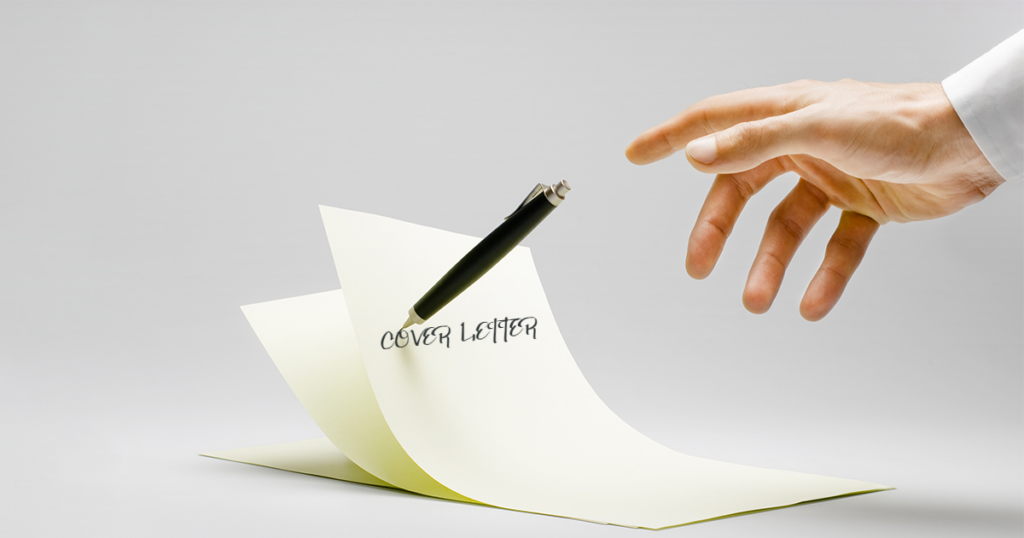
When it comes to the hiring process, every detail counts. It’s important to make a good impression on your potential employer from the moment they see you and this includes putting together a cover letter that will get them excited about meeting with you.
When writing a good cover letter, there are certain things that you want to look out for:
In order to get your cover letter noticed, you have to make sure that it’s very clear what position you’re applying for and why. You should not bury this information in a lengthy introduction but instead include it as soon as possible so that they do not overlook it. This first paragraph should also tell them exactly how you found out about their company, or perhaps mention something which caught your eye, such as a recent article written by someone within the organisation. In general, try to keep things interesting and be specific.
Try to keep your cover letter somewhere between one and three paragraphs. This will help you avoid rambling on about things that aren’t necessary or relevant, while at the same time keeping them interested enough to continue reading. It’s also important not to get too detailed in describing what you did for each job as this can be found within your resume which should stand alone once submitted. You may wish to include a brief overview of the position, but focus more on how you would excel in this role than why they need someone like yourself – unless an employer specifies otherwise!
This is the part where you will want to go into a bit more detail regarding the experience that you’ve had under any previous employers. You should not simply list off your experiences but instead, think about how each job has specifically prepared you for the position in which you’re applying. This could include transfers within a company, a customer service role that led to management, working with a team, learning how to resolve conflicts etc. Try to connect what you’ve done previously to where you’re trying to go in the future.
When you’re writing a cover letter, it’s important to focus on the skills that match up with what they are looking for. If they ask for four years of experience within finance and accounting, then be sure to highlight these particular areas. You would also want to emphasise how you’ve developed certain soft skills such as communication or teamwork which will allow them to see that you can handle stressful situations or work well in a team environment. A hiring manager wants an employee who has both technical abilities and soft skills, but most importantly, someone who’s able to fit into their organisation seamlessly – so make sure not to forget to mention this when submitting your application!
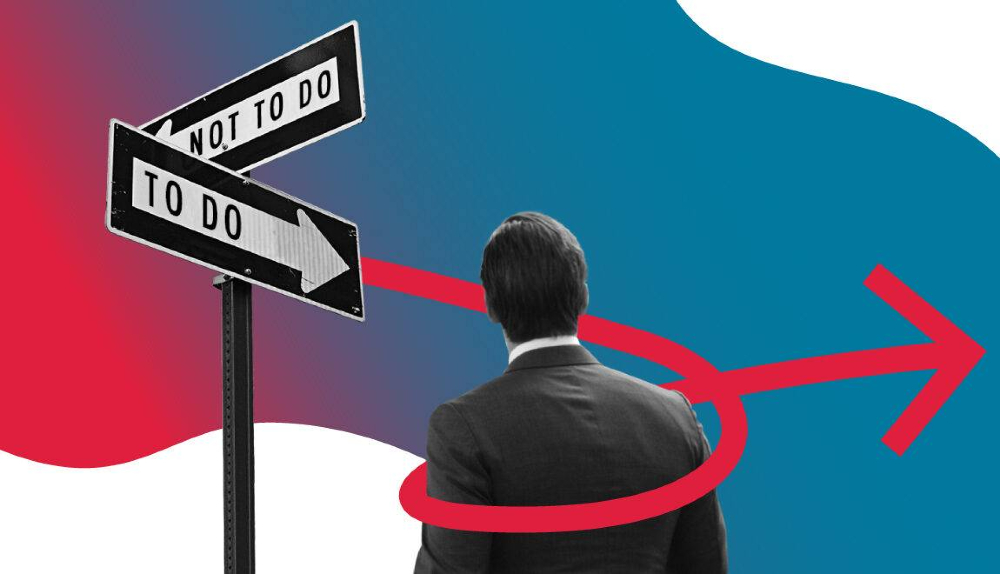
Be careful not to include any spelling mistakes (yes, even one mistake can be overlooked). You should also refrain from using any fancy fonts or colours, as this will only distract them and may not look so good once they print it out. Remember to proofread your letter several times before submitting the final version.
The first thing that you will want to do is get their attention with a greeting. You may wish to use either “Dear Hiring Manager” or simply the name of the person to who you will be sending this letter if they have shared it within their job advertisement. If not, then try using something like “To Whom It May Concern”.
Begin by stating your name, why you’re interested in their company and how you learned about the potential opportunity. This will help them get an idea of what kind of exposure that you’ve had throughout the industry – which may or may not be relevant depending on who is reading this document. Try including something such as “I am very excited about learning more about [insert role] with [insert company]. Your organisation has been at the forefront in recent news due to [insert reason here]”
You should then move on to tell them about yourself and why you would be excited for this opportunity. The first paragraph of your cover letter is not the time to go into too much detail so keep it short. This idea can be achieved by including a hook or interesting fact which will immediately capture their attention – something that they can relate to, an unusual accomplishment, or perhaps some courses you’ve attended.
Make sure that each sentence ties back into what makes you qualified for this role at their company. Focus more on explaining how these experiences have shaped who you are today rather than reciting every single task that was involved with your particular job within your cover letter. You do want employers to know what type of work ethic and skillsets that you possess but make sure that you’re not coming off as arrogant or conceited – nobody likes to read this!
Once you got the attention of your hiring manager, now is the time to discuss your previous employment history. Include any relevant prior work experience that may be related to what they are currently looking for. It’s important to describe how these roles have helped you develop certain skillsets whether it was dealing with difficult people or learning how to manage a team.
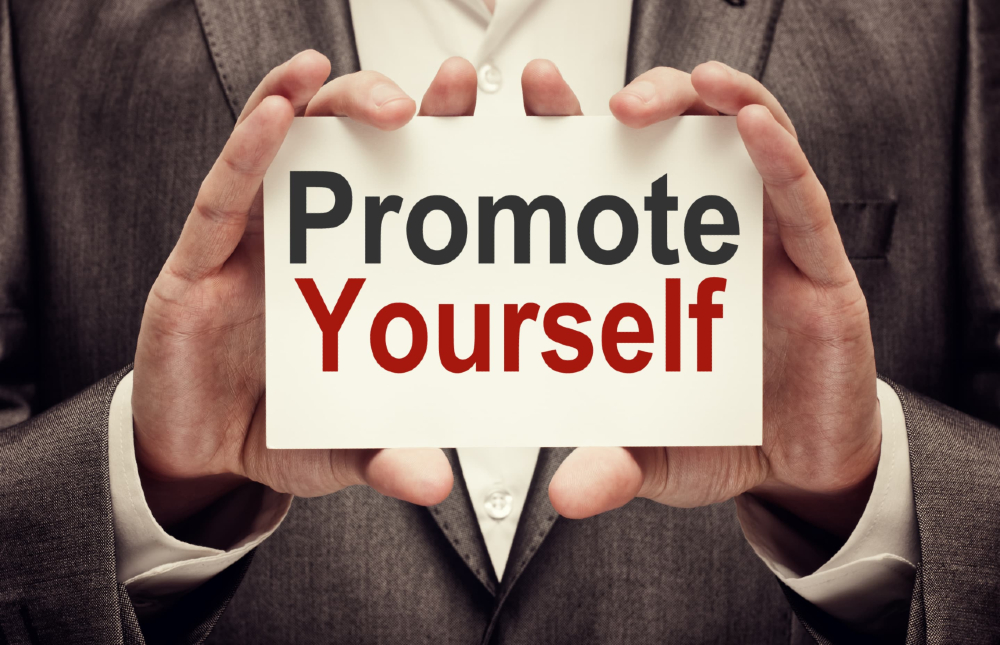
Once you’ve familiarised them with your background and experience, then it’s time to dive into why you’d be such an invaluable addition to their team. Do remember to highlight certain soft skills you’ve developed and honed over the years, like communication and teamwork, which will demonstrate that you’re someone who’s able to problem-solve effectively within a group of people! A hiring manager wants an employee who has both the hard and soft skills, but most importantly, they’ll look for a person who’s able to fit into their organisation seamlessly.
Be careful when describing yourself. Don’t brag too much but instead focus on highlighting specific skills and accomplishments. You would also want to keep your cover letter short and to the point so that they can get an idea of what you’re capable of within a limited amount of time.
Finally, make sure that you thank them for their time and consideration. Let them know that you would like to get the opportunity of interviewing with your company soon. You can also include a sentence such as “I look forward to hearing from you at [insert desired contact information]”
Ending it on a positive note is always best- this way they will be more likely to reach out if interested in moving forward with an interview since there is no pressure. They may not respond immediately so do not let this discourage you if it takes some time before receiving any feedback or communication after submitting your application. Wait patiently but still follow up once every week or two just in case someone has lost this cover letter. Thanking them again will remind them about who you are, and what you have to offer.
You can also include a sentence such as “I look forward to hearing from you at [insert desired contact information]”
Overall, the key to writing a good cover letter is understanding what makes your resume unique and tailoring it accordingly. Hiring managers don’t want to read through dozens of generic letters – they’re looking for someone who can add value immediately. You need to show that you have relevant experience or knowledge that will help them with their current needs while also detailing how this position aligns with your career goals.
Your cover letter should be no more than one page long so make sure not to include anything extraneous in order to avoid coming off as unfocused or scattered. There are many ways for you to stand out from the crowd but these four tips will allow you to start thinking about where you might fit at a company like theirs. Now all that’s left is filling out an application and sending over your resume.

It’s never easy to resign from your current position, but it can be made easier with a well-written resignation letter. This article provides guidance on how to write an effective resignation letter that you and your employer will both appreciate.
The first thing you need to do is decide why you’re writing the letter. Is it for work purposes, or personal reasons? Sometimes there can be a difference in what kind of tone and language should be used, depending on your reason for writing the resignation letter. For example, if this is due to another job offer that may make staying at your current company impossible, then using some formal wording will probably help with convincing them that this change was inevitable no matter how much they wished otherwise.
In addition to being professional, referring back to past moments shared together could also show how much working here has meant over time, while showing respect toward those who have helped you grow as an individual within their organisation. On the other hand, sometimes people write resignation letters to leave for personal reasons, such as moving to a different country or a family emergency. In this case, showing your gratitude toward the company and people who have helped you is still important. However, it should be done in a more casual tone that communicates how much these past few years meant to you, while also communicating their excitement about what’s next without seeming negative in any way.
Next comes choosing an appropriate format based on whether you’re writing the letter for professional purposes or not. If this resignation letter will be used for work purposes then there may need to be additional documentation included with it depending on why you’re leaving and when your final day of employment will be. This includes things like official proof that they were notified within the legally required time frame and any paperwork that they might need to submit to the government as a result. In addition, there will be some additional communication with your boss or HR department about when exactly you’ll show up for work on your last day so these can all come together in one easy package without anybody being confused.
Once you know what kind of format is best then it becomes much easier to write the letter itself. Again, if this resignation letter is for professional purposes then keep things brief and formal while also conveying gratitude toward those who have helped shape who you are today. These types of letters often don’t get too personal unless the relationship between employer and employee has been very strong over many years, so try to keep it professional and emotional. On the other hand, if this is a personal letter then you can take more time detailing what has made working there so special along with expressing how excited they are about their next step in life. Keep things brief but heartfelt while also including any gratitude toward those who have helped them on their journey over the years.
It’s important to remember to proofread before sending. It might seem like an obvious point, but many people send out their resignation letters quickly without thinking twice when really, these should be carefully crafted pieces of writing that express everything properly from start to finish. Once you’re happy with your letter then save it as a draft or directly send it off depending on whether or not others will need to review it first. Resignation letters don’t have to be difficult or stressful, but they can make a big difference in how your former employer feels about you after such an important event like this one.

Finally, the date of your last day should be written on all documents that you send with this letter. Your final paycheck stub for example might need to include information about when exactly it was given out so using a formal resignation letter as an official notification will help make everything clear for everyone involved while also being considerate toward their own needs and legal requirements.
Here are some examples of what a resignation letter might look like for a professional reason.
It has been my privilege to work at [Company Name] since [date]. I am stepping down from my position with your company in order to pursue other opportunities. I have really enjoyed my time here and I am leaving with great memories of the things that we’ve all accomplished together. I want to say thank you to everyone who helped me grow as an individual, especially [name(s)].
Please accept this letter as my official resignation from your company effective immediately. Enclosed please find proof of termination within the legally required timeframe along with any additional documentation needed by law or business regulations.
Dear Mr./Ms., Please accept this letter as my official resignation from your company effective immediately. Enclosed please find proof of termination within the legally required timeframe along with any additional documentation needed by law or business regulations. Thank you for everything that I have learned here and best wishes to you in the future.
When it comes time to write out your own personal reasons for leaving then try not to state anything controversial since there is no need to get anyone upset over something so important. You might even want to consider asking a friend or someone else you trust for their advice on what kinds of things are appropriate to include in your letter if they have previously written one themselves that was very effective and well-received by others.
Here are some other examples of a resignation letter for personal reasons. It also includes an expression of gratitude toward those who have helped them grow over the years.
I am really sorry to inform you that I will be leaving Company Name in two weeks. Due to personal issues beyond my control, I am no longer able to fulfil the demands of my job, and I believe it is in the company’s best interests if I leave. I would like to express my sincerest apologies for leaving [Company Name], as well as to offer you my best wishes in the future. Please do not hesitate to contact me if you believe there is anything I can do to make the transition go more smoothly. Thank you so much for your patience. Working with you was a pleasure, and I appreciate my time at the firm despite the personal difficulties I am dealing with right now. I hope we will be able to keep in touch, and I am excited to see how [Company Name] develops in the future.
This guide should help with writing out both professional or personal reasons for resigning. If it’s been hard finding the right words when crafting such a significant document then we hope our advice has given you some helpful tips on what information might be appropriate depending on whether others need to review it first before sending off. Good luck!

You’ve been offered a job. Congratulations! But now, you have to turn it down, and the thought of doing so may feel like a punch in the gut. It’s not just about turning down an opportunity – it’s about having to say no to someone who has given you an offer that you’re honoured by. The good news is: You can do this with class, grace, and some simple strategies for turning down a job offer without triggering offense or resentment on either side of the table.
If you’re reading this, chances are that you’ve already been offered the job and have a lot to think about. So let’s get down to it: Here’s how you can turn down an offer with tact!
Be sure of your decision before responding. Don’t be “yes-and” or change your mind later on when emotions fade in light of other offers (or lack thereof). Once you decline, there should be no turning back. This means being certain enough to not beat around the bush or say things like “I’m really flattered by this offer…” If you aren’t 100% positive that taking another position would better serve your career goals, then you should take a deep breath and say no!
Gracefully declining an offer can be done in several different ways: You could respond with a counter-offer of your own, or simply decline the job without offering any alternative ideas. A third option would be to recommend someone else for hire who might better suit their needs (if applicable). Keep in mind that there are many other options than those listed above so feel free to deviate if it suits your situation! The point is: It’s always best not to let emotions cloud your judgement when turning down a request.
While it’s never fun to tell someone “no” (especially if you truly enjoyed the interview process), your goal should be to make yourself feel better about turning down a job offer and not offend other parties involved. This means avoiding being vague when delivering bad news – you don’t have to give in-depth details but be sure that you say something along the lines of: “I’m so grateful for this opportunity; however, I’ve decided to go in another direction at this point.” If there are any concerns with their hiring practices or things that didn’t feel quite right during the process, you can bring those up in a professional manner as well – but be sure to remain diplomatic!

Although there is no one “perfect” way to turn down a job offer, you should always be objective and honest about your specific reason for not accepting the position, saying something like:
Once you’ve turned down an offer, it’s always a good idea to follow up with your contact-especially if they’re someone who might be able to help you out in the future. You want to keep them on your side. So shoot them a quick email thanking them again for their time, and reiterating that no one is better suited than yourself at this point but wishing them well either way. This will leave things on positive terms rather than turning into something negative or awkward.
Thank-you responses are a good way to demonstrate your gratitude for time and effort. For example:
One of the most important things to remember is that your offered job isn’t always going to be a perfect fit for you-no matter how good it looks on paper or in person. That’s why being able to turn down offers gracefully is very important when looking at long-term career prospects. It shows self awareness, confidence, professionalism, pride and discretion which can help support building relationships within the workplace environment from both employer/employee perspectives. The goal should always be getting closer as opposed to moving further apart with each job offer turn-down, so having great communication skills are necessary in order to keep things moving forward.

If you have a job interview coming up, it’s important that you know what to ask in order to get the answers that are most relevant for your situation. There are many questions out there that can help you determine if this company is right for you or not. “So, do you have any questions for us?”: Now this is the part of an interview that comes at the end. It’s important to use this list so you cover all your bases and make sure not to forget anything. In this blog post, we’ll cover some of the essential questions to properly prepare yourself when going into an interview.
The more questions you ask about the job, the better. When working in a new place, it’s important to know what is expected of you and where everything is located. You should also have an idea of how your performance will be measured so that there are no misunderstandings later on down the line between yourself and management – or even with co-workers. There are many questions to ask about the job. Some include:
In order to make a wise decision about your future, you need to know what is going on in the present. Understanding how your likely manager will measure success and the company’s priorities is critical to working well together. These questions should be very helpful to understand how your “fit” is with this company.

Having a good rapport with your interviewer is key to getting the job. You can show that you’re interested in them – and they will be more inclined to offer you employment. Here are 12 questions that will help build rapport during an interview:
How much do you know about the company that you might work for? Do you have any idea what their values are or if they even have a specific culture? It’s important to understand the place where you will be working, because it can affect your day-to-day and how much fulfilment and satisfaction you find in your job. These are the questions to ask when interviewing at a company so that you can really get to know them before accepting an offer.

Do you ever wonder what it would be like to work in a different company? One that is more laid back or one that works harder and plays harder? It’s important to know the culture of your company. Culture will determine how productive you are, how happy you are, and if the job is even worth sticking with. Take time to ask these questions about the culture before accepting an offer:
Asking the right questions about training and professional development can help you decide if a new position is the next step in your career success. Consider each job not just as a job, but as an essential step towards your goal of finding long-term satisfaction. Will this position get you closer to achieving that? The following are all questions to ask during an interview for the professional development perspective.
You’ve made it through the interview and you’re on your way out of the door. At this point, the interviewer should know everything they need about you and may very well have some burning questions. These questions can be helpful both in terms of what you do and don’t want to hear, but also in terms of determining the next steps. If they have no questions or concerns then that is a good sign. But before you go, make sure to ask these questions.
It’s not always easy to know what questions you should be asking when interviewing for a new job. The key is understanding the needs and expectations of both yourself and your potential employer. By taking time before the interview to identify which questions are most important, it’ll make it easier during this critical meeting.
We hope that these interview questions have been helpful in getting you started with preparing for an upcoming interview or helped clarify any unanswered points from previous interviews.

It’s a tough question, but it’s one that recruiters are asking frequently in the interview process. The best way to answer this question is with honesty! Employers want you to be passionate about the company and about your career path there. They also want you to have a plan for what you would like to accomplish in five years or less. This article will give tips on how to answer “Where do you see yourself in five years?” during an interview.
One way to answer this question is by mapping out a career path for yourself in the company. This shows that you’re interested in advancement opportunities and willing to invest your time into long-term projects at the organisation. You might say something like, “In five years I see myself working for this specific department as an entry level manager. From there, my goal would be to move up through management until running several different departments across all locations.”
When you answer this question with specific goals, it shows that your values align well with the company. For example, if a company is known to have great work-life balance then say something like “I would love to be able to take off Fridays for family time and stay late on Mondays as needed.” If they’re passionate about giving back through volunteer opportunities or putting in extra hours each week at different events, then mention that you want to find ways in which you can participate.
If there is no one set path for where you see yourself going after five years of employment at one organisation, feel free to share other interests instead. You could also express how much flexibility there is in your career path and how you hope to be able to switch things up as your interests change. Just make sure the answer still shows that you’re interested in working with or for their organisation.
One great way to answer this question is by focusing on why you’re interested in the specific job. You can mention that it fits into your career goals and provides a direct path towards reaching those milestones, but you want to make sure they know how much interest there is for them specifically. This shows that you have done some research about their company as well as some thinking about where you will be after five years of working at such an organisation.
Another way to answer this question is by talking about how you hope to achieve your career goals within five years of employment at their company. You might say something like “The job will help me develop my skills in (insert skill here) and I am confident that after five years, it would also make for a great resume booster.” This shows how working with them specifically fits into the bigger picture as well as provides tangible examples of what is involved in developing each aspect of yourself.

Talking about how you hope to move up when discussing your future career goals is another great way to answer this question. You could say something like “In five years, I see myself in a similar role that also has the potential for more responsibility.” It shows why they should hire you but it also implies that there is room for growth within their company as well. This will make them want to hire you even more because they know your skills and expertise are valuable to the organisation.
Above all, be honest with your answer. Don’t say something that you don’t think is true or will likely not come to fruition simply because the interviewer asks this question! You can also mention how important their company is to your motivation in getting a job and then go into detail about why it’s so meaningful for you.
First, you need to make sure you’re prepared for this question in the interview. Make notes about your career path, short-term and long-term goals. You’ll want to be able to clearly explain where do you see yourself going with your career so that it aligns with what the company is looking for.
Secondly, don’t be afraid to share your passion with the interviewer. They’re interested in hiring someone who is committed and passionate about their career at this company, so let them know that you’re interested.
Third, make sure you’re not only ready to answer this question in an interview but that your career goals align with the company’s growth. If they’re a start-up and want people who can grow along with them there is nothing wrong with saying so.
It’s important to be prepared for this question in an interview so that you stand out among other candidates. You don’t want the hiring manager to know from your answer alone whether or not they should hire you, though! Make sure your resume is up-to-date and highlight some of the skills relevant to this job as well as a few accomplishments that will show them why their company should become part of your future plans too.
Don’t forget that it helps if you’re familiar with where this organisation sees themselves within five years because knowing what direction they’re moving towards can make answering much easier. They might also ask about how current employees see themselves at such a company after several years on board, which shows just how interested they’re in their company. The interviewer is likely looking for someone who will be committed to the company and their future goals.
Make sure that your answer aligns with theirs. If you’re not sure what they’re expecting, take time to research the organisation’s mission statement or organisational values before going into an interview – it can make a huge difference in how successful the interview goes. Remember: honesty pays off in interviews so don’t say something just because you think they want to hear it if it isn’t true.
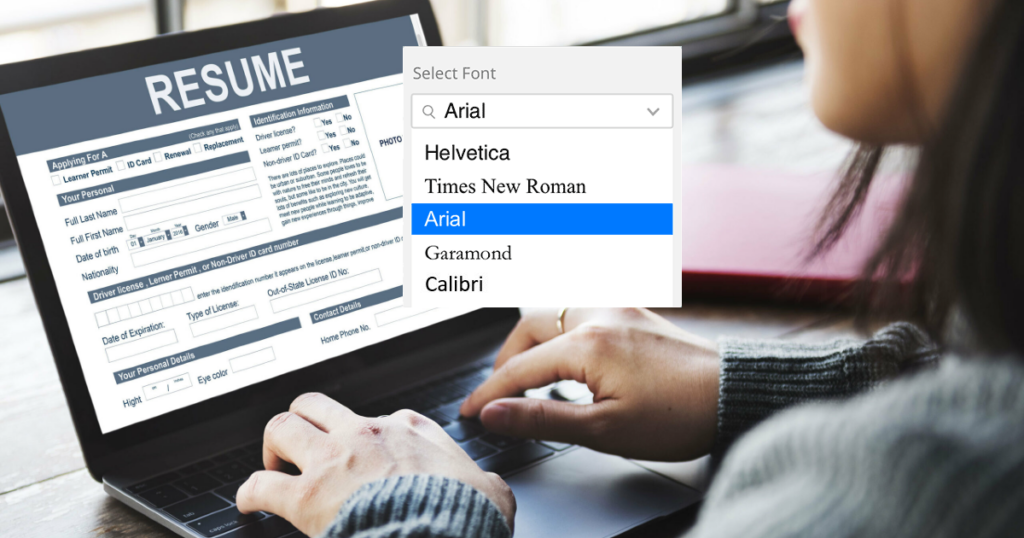
If you’re currently looking for a new job, the first thing that comes to mind is what to wear. But what about your resume? After all, it may be the first impression an employer will get of you. One way in which employers judge resumes is by font size and font type. This article provides information on how to choose the best fonts and sizes for your resume, so that you can increase your chances of getting hired.
There are two main reasons why your resume font matters. First, your resume is a document for humans, not machines. As a job seeker, you want to ensure that the design of your resume will pique the interest of those who read it so they’re thinking about what you can bring to their organisation, rather than being hung up on poor font choices. Use a font that’s both readable and professional-looking.
Another challenge of using different fonts is that HR professionals relying on applicant tracking systems (ATS) cannot read some fonts as well. ATSs are programmed to read resume documents in a certain way to focus on the content and ensure they’re organised accordingly, so resumes need to meet compatibility standards if they’re seeking greater exposure through these programmes.
The best fonts are those that have a classic look and feel, make your resume easy to read, and enhance the design. There’s no “perfect” font because it will be up to the employer’s personal preference. However, there are some excellent fonts you might want to consider:
Now that you have a few guidelines about the traditional fonts and some basic considerations, avoid using any heavily stylised fonts, narrow condensed fonts or light versions of your chosen font. Also know that non-standard or downloaded custom fonts are to be avoided because they can make potential employers think you’re not detail oriented, which may affect whether they hire you for a position. You should avoid these fonts when creating or updating your resume:
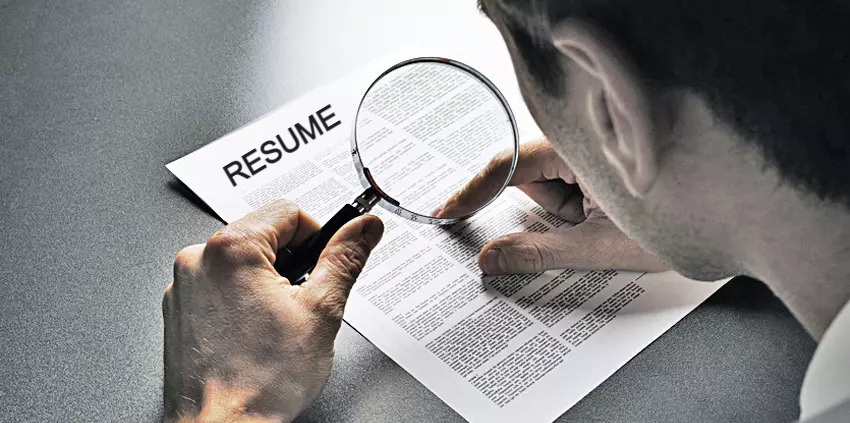
When considering resume font size and length, it’s important to strike a balance. “Too large” of size can result in writing up the entirety of your experience on one page without necessarily having the years of experience to back up that resume length, whereas if you go too small, recruiters may not be able to read your resume and will likely put it in the no pile.
Most experts agree that 12-point font(pt) size is good for resumes since employers can easily scan this type of text quickly without affecting readability. Others recommend using 11-point font size with Arial or Helvetica as the fonts on your resume if you’re applying in corporate settings where conservative
Your name, heading and subheading should all have different font sizes to help create a composition that will catch employers’ attention. The best rule of thumb for these three elements is as follows:
However, these are not the only factors that contribute to a resume’s font size. You should also consider whether your name is in all caps or mixed case. For example, if you have an unusual last name with letters of varying heights (i.e., RyLeeo Chan), then it may be advantageous for your first and last names to be at least 14pt so they will stand apart from each other better on the page. Similarly, there’s no point using 11pt font sizes for subheadings when 12pt would do just as well without sacrificing readability. In general, larger fonts give more authority to written content but make sure that such formatting doesn’t come across as too aggressive or “in-your-face.”
What kinds of fonts fit all these considerations? Put simply, the classics: The fonts that come standard across a range of programmes, and aren’t overly flashy or designed. These fonts became standard because they’re easy on human eyes, and since they’re standard, ATSs are programmed to read them.
Sometimes employers will want really specific information from a candidate’s resume including which schools he attended, what degrees were obtained and where previous places of employment were located; therefore if these items are important to you, then it’s best to use bold font.

It’s typically not a good idea to use underlined text in your resume because the reader might mistake this for links that need clicking, and will be disappointed when they’re only words without any other content attached.
Since recruiters can read resumes quickly, go ahead and make sure all of your resume’s items are easy to scan by using no more than two fonts at one time – with both being serif or sans serif fonts – and keeping headings short but descriptive as possible. Keep them succinct too. If you’re looking for something with fancier typography, try incorporating graphic elements such as icons rather than elaborate headers.
When it comes to picking a font for your resume, there’s really no right or wrong answer. Which one you pick will depend on personal preference and the message you want to get across with your resume.
Consider whether a serif or sans serif font might work better for you. Masculine, modern fonts like Arial and Calibri are likely to be more popular with prospective employers, while more conservative fonts like Times New Roman and Georgia can help make your resume look traditional and trustworthy.
In order to identify the type of font you’re seeing, note if the lines attached to the top of a capital T are short lines or not. If they’re a single straight line across, it’s sans serif. If there are shorter hanging lines, it’s most likely serif. When deciding on the typography for your resume, pick a font which is aesthetically pleasing to you.
While the research might sound daunting, you can create a resume that’s visually appealing by sticking to these classics.
For example, you should use a bold and italic font or emphasise job titles with color to add visual interest. Underlining headings is usually unnecessary since people read underlined text as links to linked content.
In addition to choosing typography that’s readable, your content should be visually pleasing. Use two fonts: one for headings and another for the body copy. More than two font combinations will start to distract the reader.
It’s always important to make sure your resume looks clean and neat. This ensures that you will be able to maintain easy scanning which, in turn, makes it more likely that a recruiter will read the entirety of your skillset. The last thing anyone wants is for their resume to end up at the bottom of a pile because they used an unreadable font; don’t do this inadvertently.
Choosing the right font is a big decision when it comes to your resume. You want to make sure that you’re being clear and concise, but at the same time, you don’t want to lose out on potential opportunities because of unreadable text. To keep things short and sweet – consider using two fonts: One for headings, and another for body copy. In addition, choose typography that will be visually pleasing without distracting from important information in an employer’s eyesight or making them think they have clicked on a link instead of reading text.

Do you know what to say when you’re asked “Tell me about yourself” in an interview? The answer isn’t as simple as it may seem. In an interview, your answer could be the difference between landing the job or getting passed up for another candidate. That’s why we’ve compiled a list of 12 tips to help you prepare for this common question, and make sure you’re confident in your response.
It doesn’t matter if you’re 25 or 35; rather, the interviewer is interested in what skills and potentials that may come with your specific experience level. Be sure to include any relevant educational degrees too so they know you’re a serious candidate for their open position. Whether it’s an MBA or a Bachelor’s degree, it shows that you’re dedicated to your career.
Instead of saying “I’ve been working in this industry for five years”, try something like: “In my current role as a Brand Manager at XYZ Company, I oversee all marketing efforts and have increased sales by 20% in the past year.” This shows that you’re capable of leading projects to success.
Employers are looking for candidates who have diverse skills and aren’t just robots with big egos. Including things like “I enjoy taking trips to the beach in my spare time” or “My favourite hobby is reading books by authors I admire”, shows that you’re well-rounded individual who has hobbies.
Don’t focus on what you want from a job or company. Instead of saying “I’m looking for more money”, try something like: “My goal is to advance my career and hone in on my leadership skills.” Employers are not interested in your salary expectations; they’re only concerned with showing that you will be an asset to the team. You can also include any relevant certifications such as CPR if applicable too.
Try something like: “I’ve always had a passion for marketing and I would love the opportunity to use my skills at XYZ Company.” This shows that you’re enthusiastic about this job in particular since it’s clear you have worked with similar responsibilities before. It also lets them know what aspects of their company interest you so they can determine whether or not there is potential for advancement opportunities down the road; plus employers want candidates who already show dedication.
Avoid language that could sound too informal. A great example is “I really love to design logos.” Instead try, “I’m skilled at designing logos and enjoy working in that aspect of my role”. This shows you’re professional and have a good understanding of what the job entails.

Avoid saying anything negative about your past work experiences or even jobs in general. You never know if they might ask for more information so it’s best not to risk any negativity unless required by law (i.e., sexual harassment). If asked why you want to leave XYZ Company say something like: “After looking over the available position with ABC Company I believe this would be an excellent career opportunity for me moving forward.” Employers don’t care if you ‘re unhappy with your current boss; they want to know that you’re ready for a change.
Don’t go into too much detail about how excited you’re or what great ideas you have for the company unless asked directly. You should focus on highlighting your strengths so make sure it’s clear why they would be lucky to have someone like yourself working at their office. That being said, if an interviewer asks “What is one of your biggest accomplishments?”, feel free to include all the highlights of something big and exciting that happened in your career (i.e., helped XYZ Company complete a merger). It shows them what kind of success might lie ahead under your leadership skills.
Don’t forget to end your answer on a positive note. You know those people who always say something negative or complain about their previous jobs? Don’t be one of them – you want to leave an impression that’s in line with how you will act when working at this company too. One way to do this is by saying something along the lines of “I’m very excited for this opportunity and I would love to have a chance at working with you”.
Don’t forget about your non-verbal cues. Body language is important too and if you’re nervous it will show in how stiffly you sit and talk – avoid fidgeting as much as you can and concentrate on keeping your arms relaxed at your sides. Practice in the mirror so you know how to act confident during an interview.
Practice makes perfect. You don’t need to memorise your answer word-for-word but be prepared enough so that it flows naturally when you sit down for the interview. Practice a few times with friends or family members so you know you’re ready to take on this question.
Finally, your Tell Me About Yourself answer should be between 60-90 seconds long. That’s enough time to explain who you’re and what makes you a good fit for the job without going overboard. If it starts feeling like more of an interview speech than Q&A, that means you’ve gone over by too much. Keep things concise, but don’t leave out any important information either.
Introducing your skills and personality in a way that is memorable and persuasive is an important part of interviewing. That’s why it’s so important to be prepared for this question, which will likely come up at the beginning or end of any job interview you have. We hope that our list has helped, and given you some guidance when it comes to answering “Tell me about yourself”.

You’ve graduated and you’re finally ready to start your career. Congratulations! You have many options available to you, so how do you know which one is best suited for your personality? That’s where these 10 expert recommended career tests come in handy. They’ll help narrow down the different aspects that make up a person’s ideal job, and give you an idea of what careers are the most suitable for who you are.
One of the most important aspects that make up a person’s ideal job is their specific personality. Personality, at its simplest definition, can be boiled down into four categories: Extroverted vs. introverted personalities; sensing vs. intuitive personalities; thinking mindsets vs. feeling mindsets; and judging vs. perceiving viewpoints.
Personality type may not seem like an aspect that makes up your perfect career, but people really enjoy doing things they’re good at. The more you explore careers which align with your strengths and weaknesses in these areas, the better idea you’ll have about what kind of work suits you best. As you explore different career paths, you’ll be able to narrow down your options by having a better sense of the type of work that suits you best.
There are many ways to get detailed information about your strengths and weaknesses in these four categories, but one easy way is through “personality” testing sites like ‘What’s Your Personality Type?‘ The site has an online assessment which will give you more insight into who you really are as a person, and what types of careers might suit your strengths and weaknesses most.
The infographic below shows how different personality traits can combine with career paths to create various combinations that could be perfect for someone looking for their ideal job.
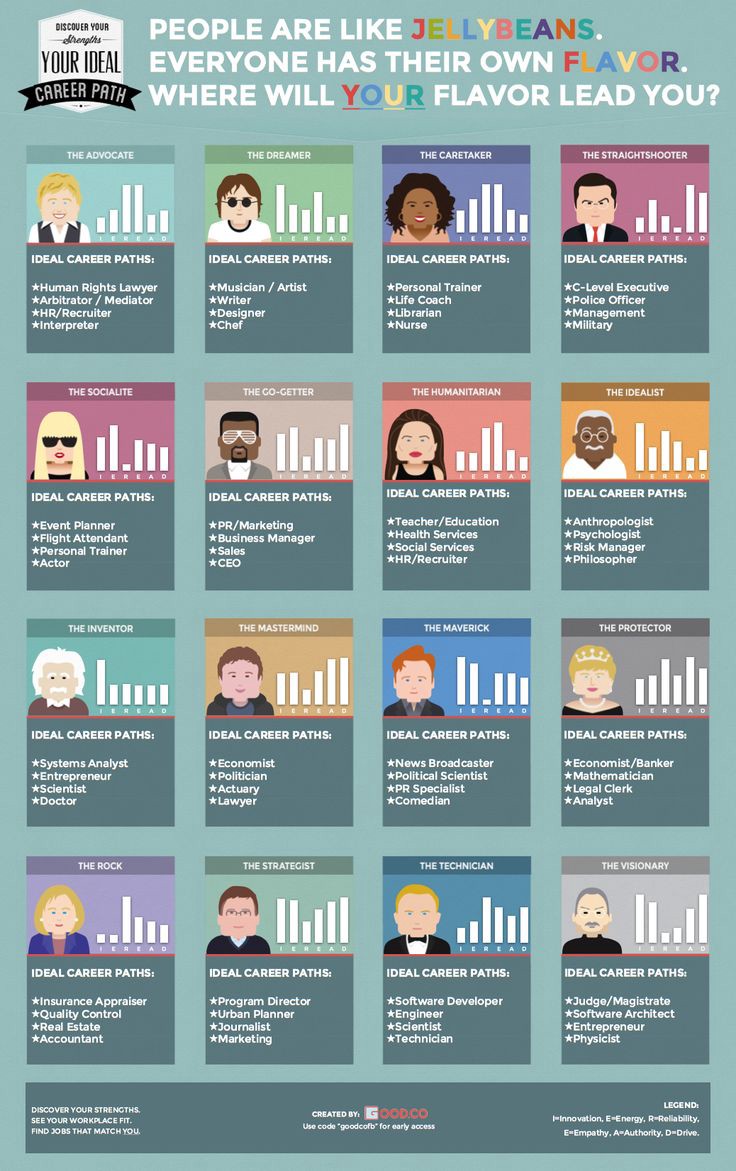
The best way to find what type of work is most suited for you is by exploring careers which match up closely with your strengths and weaknesses in these four areas (extroversion vs. introversion; sensing vs intuition; thinking mindset vs feeling mindset; and judging vs. perceiving) – so take a personality test today!
Once you have a rough idea of your personality, you can delve deeper into career tests to best measure interests and find jobs that are in sync with your skills and ambition. We’ve compiled 10 of the best career aptitude tests you can take online for free and a fee to get in-depth analysis, so you don’t waste time applying for jobs that wouldn’t be a good fit.
It’s important to find a career that suits your personality. Jobs can sometimes be taken for money or status, but should ideally offer the chance to let your personality flourish in pursuit of something you love.
123 Career Test is a five-to-ten minute survey to identify your career personality. This website will show you a variety of career paths, and you answer “yes” or “no” in regards to whether that path would be interesting. 123CareerTest is a site that helps determine which occupation best suit your personality types and recommends occupations that you may enjoy.
Cost: Free
In less than 10 minutes, this career personality test will provide more insight into how you interact with others. The online test evaluates how you would react to new developments and situations, your extroversion, self-discipline, and more. Furthermore, it can help you understand how to handle your job and co-workers.
Cost: Free for the basic report; US$19.95 for the full report
Princeton Review’s career quiz is integral in finding out what you would like to do. 123 Career Test shows pictures, but Princeton Review’s test offers phrases such as “I would rather be a tax lawyer” or “I would rather be a newspaper editor”. If you prefer words to images, take this test instead.
The test consists of 24 questions, and at the end, you’ll be assigned a colour based on how your personality type aligns with different possible career categories. While not as comprehensive as some of the other options on this list, these resources are useful if you’re looking for a direction to explore your interests.
Cost: Free
The MAPP (Motivational Appraisal Personal Potential) test will help determine your true calling by analysing which tasks you enjoy most, how you like to work with people just as much as data and things, and how you reason. Various packages are available for more in-depth results but the free sample offers a basic look at the top two trait preferences and suggests ten possible career paths.
Cost: Free sample; US$89.95 for the full results
Finding a perfect company match with your values can be difficult because you never know what they are or haven’t had experience in that type of environment. MyPlan.com offers a free values assessment that can help you choose your best jobs. The tests assigns an individual to one of six clusters. From there, you are shown a list of 739 occupations that match your assigned cluster best. If you’re unsure about what industry to pursue, this quiz can offer some useful insights.
Cost: Free Career Value Assessment; US$19.95 for the whole package
This test is the best way to discover what your ideal career is according to one of nine personality types: The reformer, the helper, the achiever, the individualist, the investigator, the loyalist, the enthusiast, the challenger, and the peacemaker. This will create a detailed profile that highlights strengths and weaknesses of nine types in your overall personality.
Understanding the type of personality you possess can not only help you relate better to your co-workers, but also clue you in on which characteristics are necessary for a fulfilling career and the challenges that may come as a result with it.
Cost: US$12
Navigating your career can be a difficult task, and it is hard to know what you are good at or which jobs will make you happiest. Some people find themselves wondering if they are on track in their field or if they should explore another opportunity.
The Johnson O’Connor Research Foundation has developed this career strengths tests based on skills such as numerical reasoning and concept organisation. The Career Strengths test, which Oprah herself endorses, is a collection of assessments that evaluates your strengths in these skills. The test can simplify your career search by narrowing down which of the many jobs to pursue.
Cost: Free
This career test, created by the US Department of Labor, is a tool that seeks to offer personalised job suggestions based on an individual’s interests and level of work experience. This 60-question quiz will allow you to learn about six professional areas: Realistic, investigative, artistic, social, enterprising, and conventional.
It comes with a detailed explanation for each area along with several career options, thus helping you to define your interests with explanations on what each career requires. For example, if you were to fall under the ‘realistic’ area, you might like being a driver, and what you’d need is a driver’s license.
Cost: Free
The Myers-Briggs Type Indicator is the most effective way to assess your preferences and suitability for a career you’re considering. MBTI helps individuals understand their strengths and preferred working styles, which ultimately improves their ability to find the right profession.
This assessment can be used in a workplace setting to better understand the strengths and weaknesses of people who work for your company, as well as an individual context to help you understand your own personality traits. Though interests can point to jobs that fit well with certain styles or personality types, they also give insight on what kind of workplaces are best for those scores, as well as how one might interact most comfortably in an office environment.
Cost: US$49.95 for basic online report; US$175 for personal feedback
The test uses the RIASEC theory, which analyse your results to recommend occupations that correspond with each personality type. This career quiz tests how well you fit into each type and shows your top three personality attributes. Those are combined to find a job that matches who you are best. The questionnaire is a brief 20-minute process that asks about your ambitions, and what drives you.
Cost: Starting from US$6.95
The various career tests available to today’s job seekers can seem overwhelming, and many people wonder which test is best for them. Though there are a variety of assessments out there that offer insight into the right occupation or field for you, it helps to know what your personality type is in order to narrow down potential careers.
Use the Myers-Briggs Type Indicator if you want to understand your preferred working style and find occupations that suit those attributes; use PathSource if you need help figuring out where interests should lead; or try the Johnson O’Connor Research Foundation Career Strengths Test if you’re not sure how well certain skills fit with jobs.
Whichever assessment suits your needs better, will provide an overview on which fields might be most fulfilling for you!